A Comprehensive Look at the Mental Health Benefits
Anxiety has become an increasingly prevalent issue in today’s fast-paced world, affecting millions of people worldwide. As a result, many people are seeking alternative methods to traditional therapies to help manage and alleviate their anxiety. Does Martial Arts Help with Anxiety? Yes! Martial arts is a holistic approach that not only strengthens the body but also nurtures the mind and spirit. But how exactly does martial arts help with anxiety? In this blog post, we’ll dive deep into the various ways martial arts training can benefit mental health and assist in managing anxiety.
Key Takeaways
Martial arts training can be an effective treatment for anxiety and depression, improving mental health through self-esteem, confidence, and other positive benefits.
Learn how to manage anxiety with martial arts techniques such as mindfulness meditation exercises & striking pads.
Gain control over your anxiety by exploring different styles of martial arts & finding a qualified instructor!
The Connection Between Martial Arts and Anxiety
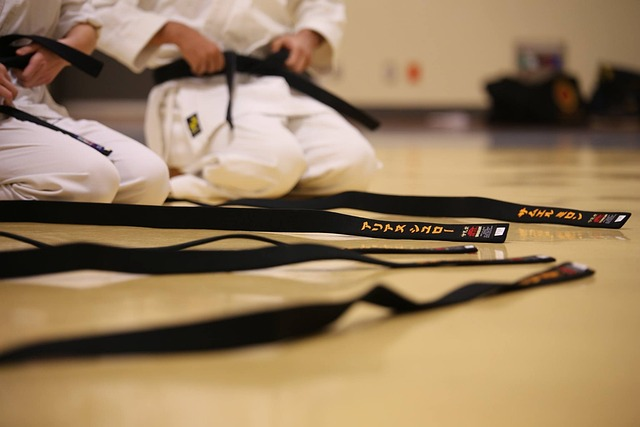
Martial arts training offers a unique combination of neurological and physical effects that can greatly improve mental health. In fact, several studies have shown positive results in alleviating symptoms related to mental illness, such as anxiety and depression, through martial arts practice, making it an effective mental health treatment.
As a practitioner of martial arts, the benefits you can experience include boosted self-esteem, reduced depression and anxiety, and increased confidence to tackle any challenge.
Neurological Effects
The health benefits of martial arts training can truly improve focus and emotional regulation by strengthening neural pathways and increasing dopamine levels. As a powerful hormone, dopamine can help us stay focused and motivated, both mentally and physically, contributing to our overall physical health.
Practicing martial arts not only sharpens your physical skills but also fortifies your mental strength, effectively reducing stress and anxiety.
Physical Activity and Anxiety Reduction
Engaging in physical activity through martial arts can help you feel more relaxed and less anxious, providing physical benefits that contribute to overall well-being. Physical activity can help reduce anxiety, including social anxiety disorder, by:
Releasing endorphins
Enhancing blood circulation and oxygen flow to the brain
Giving you a break from worrying thoughts
Increasing your self-confidence
Giving you a feeling of control and empowerment
It enhances both your physical health and mental well-being, making you a well-rounded martial artist.
Martial Arts Techniques for Managing Anxiety
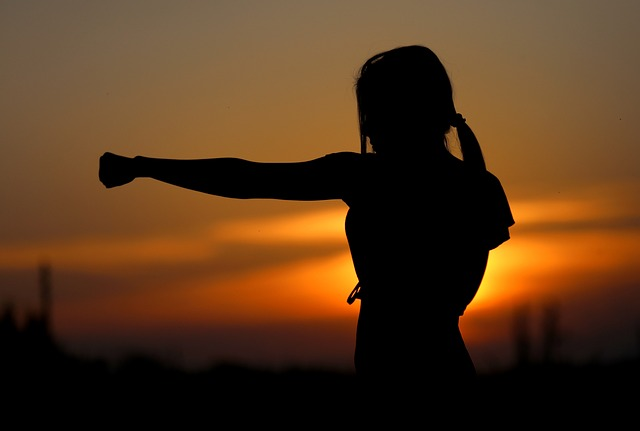
Martial arts offer a powerful tool for managing anxiety, with the following practices:
Mindfulness and meditation
Deep breathing exercises
Visualization techniques
Striking pads or performing forms (katas) for cathartic release
Plus, martial arts training can also help regulate breathing, which can be a great way to reduce anxiety.
A qualified martial arts instructor can guide you in learning various techniques to manage anxiety and enhance overall mental health.
Breathing Exercises
In martial arts practice, controlled breathing techniques aid in focusing on your breath for body and mind relaxation. These techniques prove highly effective in reducing anxiety, contributing to overall well-being.
Some great examples of controlled breathing techniques that can be learned in martial arts classes include deep breathing, abdominal breathing, and alternate nostril breathing. Using these controlled breathing techniques can diminish stress and anxiety, improve focus and concentration, and enhance energy levels.
Meditation and Mindfulness
Martial arts classes often incorporate meditation and mindfulness practices, which can help individuals achieve a greater sense of well-being and peace of mind. Mindfulness is closely related to self-control and is an important aspect of achieving success in martial arts training.
Practicing meditation and mindfulness cultivates self-control, focus, and calm, facilitating better regulation of emotions and responses during stress. This empowers effective coping with stress and anxiety, leading to a calmer, balanced state of mind.
Partner Training
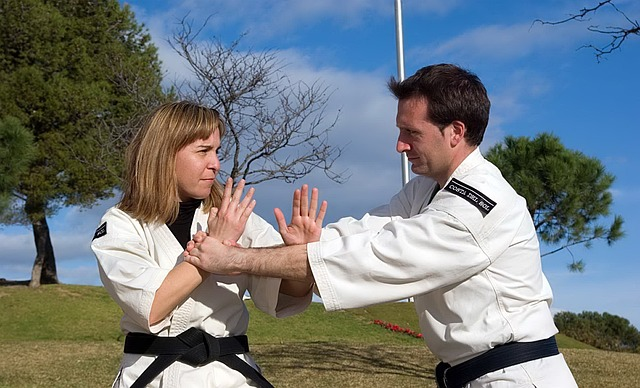
Partner training in martial arts practice is a great way to challenge yourself and develop your martial arts skills. Working with a partner allows you to practice techniques and drills in a safe and supportive environment.
Partner training in martial arts classes can significantly reduce anxiety by assisting individuals in staying present and focused. Partner training fosters camaraderie, technique improvement, and motivation through friendly competition, contributing to a relaxed, focused mindset.
Building Self-Esteem and Confidence Through Martial Arts
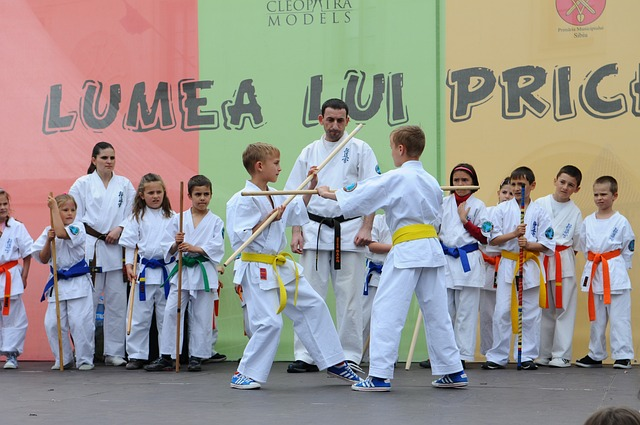
Developing a new skill with the support of classmates and instructors through martial arts training can boost your self-esteem and confidence, leading to a more positive outlook overall.
Overcoming challenges and achieving goals in martial arts practice fosters self-esteem and confidence, resulting in an enhanced self-image and heightened self-worth.
Overcoming Challenges
Martial arts training can help individuals cultivate.
Mental and physical strength
The capacity to concentrate and remain composed in difficult circumstances
The ability to better regulate their emotions and responses
Improved coping skills for stress and anxiety
This training can empower individuals to lead a more balanced and resilient life.
Martial arts provide opportunities for pride in accomplishments and community belonging, contributing to increased self-esteem and resilience.
Goal Setting and Achievement
With goal setting and achievement in martial arts training, you can reach incredible heights, such as earning a black belt, winning world titles, and cultivating self-control and inner strength.
Setting and achieving goals in martial arts practice proves rewarding, boosting confidence and self-esteem through a sense of accomplishment and progress. Plus, it can also help to build self-discipline and resilience, which can help to reduce anxiety.
The Social Aspect of Martial Arts Training
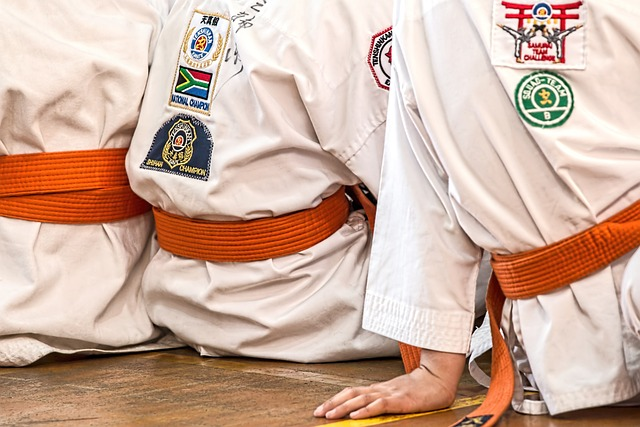
Practicing martial arts offers a chance to develop social skills within a positive, encouraging community, helping to alleviate stress and anxiety. Partner training in martial arts classes can significantly reduce anxiety by assisting individuals in staying present and focused.
The role of a qualified martial arts instructor is paramount in nurturing this social aspect by creating a safe and supportive environment for students.
Developing Social Skills
Martial arts practice can be a great way to hone your social skills, such as:
accepting feedback
showing respect
working as a team
communicating effectively
forming relationships
Incorporating these skills into your life can help you build better connections and reduce stress.
Enhanced social skills foster better interactions and reduced anxiety, enabling smoother navigation of social situations with increased confidence.
Supportive Community
A supportive martial arts community is a vibrant group of people who come together to practice martial arts and offer each other emotional and moral encouragement. Being part of a supportive martial arts community, which can be found in martial arts classes, can provide a wonderful sense of belonging, connection, and camaraderie that can help you feel less isolated and lonely.
The presence of a qualified martial arts instructor is crucial in fostering a safe and encouraging practice atmosphere, helping alleviate stress and imparting a sense of security.
Choosing the Right Martial Art for Anxiety Relief
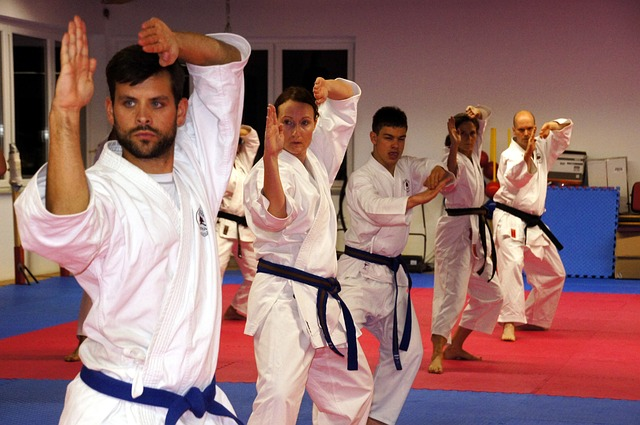
Certain martial arts styles may be better suited for anxiety relief, depending on personal preferences and needs. Consideration should be given to what works best for you when choosing a martial art for anxiety reduction.
Tai chi, Kickboxing, Capoeira, Taekwondo, Brazilian Jiu-jitsu, Boxing, Judo, Karate, Kyokushin Karate, Muay Thai, and Mixed Martial Arts (MMA) can all be great options to reduce stress, promote deep breathing, meditation, and mindfulness, and improve your mental health.
Real-Life Stories: How Martial Arts Helped with Anxiety
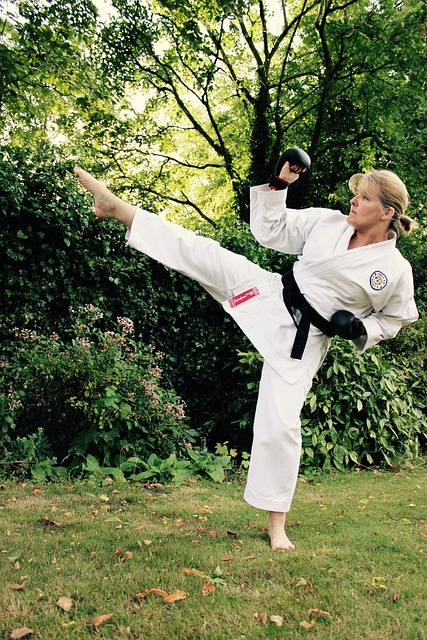
Martial arts training has helped countless individuals overcome anxiety and improve their mental health. From the empowering nature of martial arts practice to the various techniques learned to manage anxiety, personal accounts demonstrate the life-changing benefits of martial arts training.
As individuals share their stories of success in managing anxiety through martial arts, you can gain inspiration and insight into how martial arts can help you on your journey to better mental health.
Tips for Starting Your Martial Arts Journey
If considering taking martial arts to help with Anxiety, and improve mental health, it’s important to find a style that aligns with your needs and objectives, and a qualified instructor offering guidance and encouragement. To get started, try visiting local martial arts schools, speaking with instructors, and attending introductory classes to discover the right fit for you.
Remember, setting attainable goals and practicing regularly is key, and both can be achieved through consistent attendance at martial arts classes.
Summary
In conclusion, Martial Arts can help with anxiety. Martial arts training offers a holistic and empowering approach to managing anxiety and improving mental health. From the neurological and physical effects to the various techniques and supportive community, martial arts practice can provide a wealth of benefits that extend beyond the dojo. As you embark on your martial arts journey, remember that the most important aspect is finding the right style and environment that suits your unique needs and goals. With dedication and practice, martial arts can become a powerful ally in your fight against anxiety.
Prestige Martial Arts offers a free 1-on-1 Introductory Lesson to help new students become comfortable and help manage their anxiety. Learn more on our website at www.PrestigeMA.com.
Frequently Asked Questions
Can fighting help anxiety?
Fighting can help reduce anxiety through the release of endorphins and by teaching deep breathing, meditation, and mindfulness.
Learning martial arts helps to train the mind to stay calm and alert in times of distress.
Does martial arts help with mental illness?
Martial arts can help manage emotions and cultivate self-esteem, so it can be a great tool to use for those suffering from mental illness.
Can Jiu Jitsu help with anxiety?
Yes, Jiu-Jitsu can help with anxiety as it trains the mind to focus on the present and provides tools to survive under pressure, so you can better deal with difficult situations.
How can controlled breathing techniques in martial arts help with anxiety?
Controlled breathing techniques in martial arts can help relax the body and mind, reducing anxiety and contributing to overall wellbeing.
What social skills can I learn by practicing martial arts?
Practicing martial arts can help you develop important social skills like accepting feedback, respecting others, working in teams, improving communication, and building meaningful relationships.